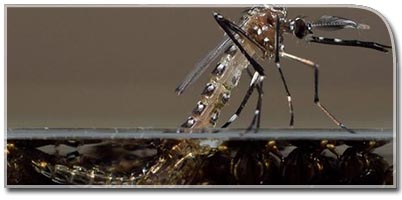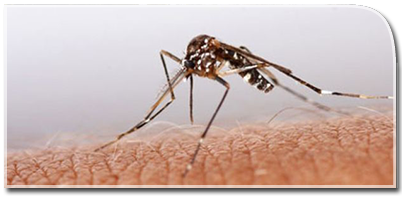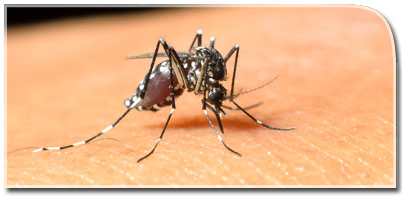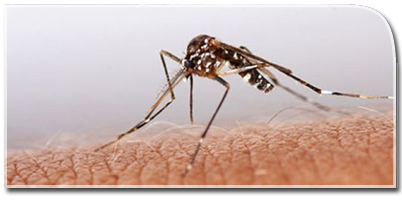Florida May See Genetically Modified Mosquitoes
In the news this week you may have noticed articles with eye catching headlines about genetically modified mosquitoes being released into the Florida Keys. In a nutshell, Florida is waiting for the Food & Drug Administration (FDA) to approve an experiment in which a mosquito would be used as a drug to cure (stay with us, we’ll explain) some of the diseases mosquitoes can carry, specifically Aedes aegypti, a tiger-striped invader whose biting females spread these viruses.
Over the past year we’ve been keeping you updated on Chikungunya as it crossed into the United States in the summer of 2014. The disease is not fatal, but can be extremely painful if contracted. Also more common in the southern United States is Dengue fever. Dengue can cause high fever, severe headache, pain behind the eyes, joint pain, muscle and bone pain. With Chikungunya having the same symptoms and neither one having a cure, researchers are constantly looking for ways to stop these illnesses from spreading.
This is where the British company Oxitec comes in with a strategy to use the mosquito as a drug and possible solution. Oxitec has been altering the DNA of the tiger mosquito, releasing bioengineered male mosquitoes into the population. The modified males then mate with wild females, whose offspring die before reaching adulthood, thus reducing the population. Oxitec has already conducted experiments in other countries that have reported favorable results. Company spokeswoman Chris Creese said the Florida test will be similar in size to Oxitec’s 2012 experiment in the Cayman Islands, where 3.3 million modified mosquitoes were released over six months, suppressing 96 percent of the targeted bugs. Oxitec says a later test in Brazil was also successful, and both countries now want larger-scale projects. Oxitec has built a breeding lab in Marathon and hopes to release its mosquitoes this spring in Key Haven, but FDA spokeswoman Theresa Eisenman said no field tests will be allowed until the agency has “thoroughly reviewed all the necessary information.”
The necessary information Eisenman is referring to includes questions the public has been asking like what if altered females (the gender that bites for blood) are mistakenly released into the wild and as such, what if I get bitten by a modified mosquito? Does this genetically altered DNA affect me? Oxitec says the proteins are non-toxic and non-allergenic, yet public concern remains high throughout Florida. The FDA will be reviewing all data from past experiments before allowing this to happen in the United States.
It is important to remember that at the end of the day, we’re all trying to solve the same problem and that is eliminating mosquitoes and keeping our communities safe and healthy. This experiment is one way people are looking to research, and ultimately science, for a unique solution. We trust that the FDA will do their due diligence to cross off any health or safety concerns and make the best decision for the end goal.
Regardless of the ultimate outcome, you should always be mindful when outdoors around prime mosquito feeding times (dusk and dawn) to stay protected from mosquito borne illness, especially in Florida. It’s best to have an active form of protection against mosquitoes in your yard, like the barrier spray treatments we offer, but at a minimum make sure to wear long sleeves and pants when outside during peak mosquito times and eliminate standing water in your yard. Want more tips? Contact your local Mosquito Joe!








